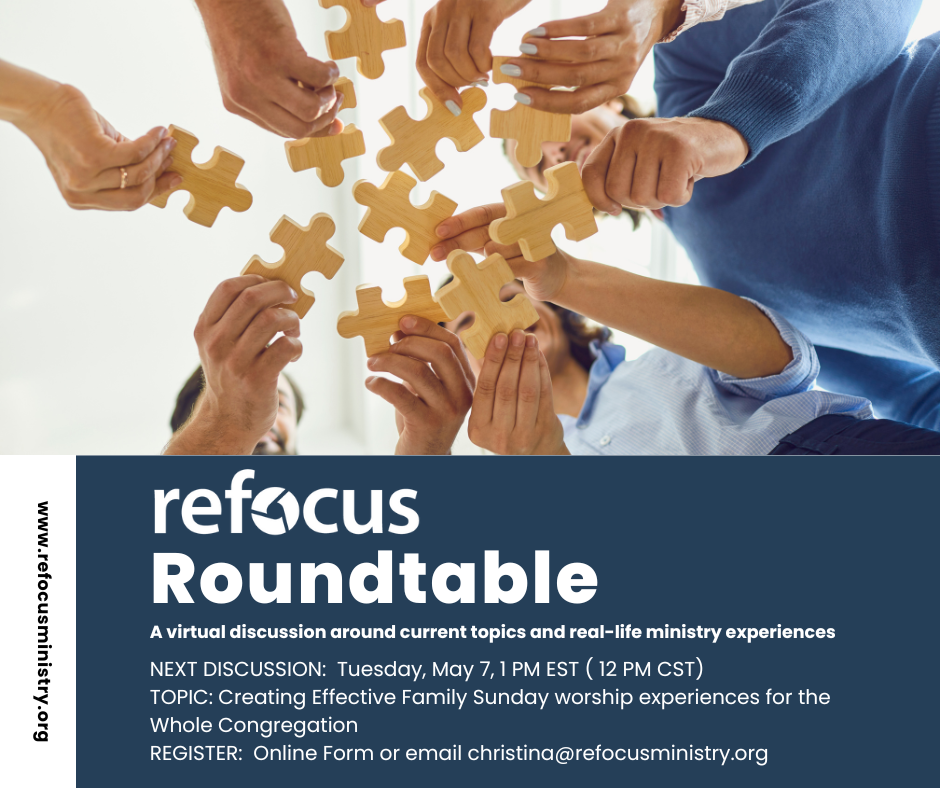And by that I mean, let’s not.
Ever since her new album (do we still call them albums?) dropped, the Christian ministry social media circles have been ablaze with warnings about her music. Some just point out that she uses vulgarity, others point to her lyrics that question Christianity, and others have gone so far as to declare her a witch and call her music demonic,
And frankly, this blog post isn’t about that. In fact, I wish I wasn’t using the brief amount of time, energy, and space I just have to talk about it. Why?
Because, for all the dire warnings and the head-shaking and the “kids these days” comments that have blustered their way around Facebook and other social media sites over the last few days, nearly no one is talking about what really matters.
So, what really matters?
What really matters is that rising generations are walking away, not just from the church building, but anything that is remotely Christian in nature. They are rejecting wholesale the gospel message they have received as kids and, to be honest, Swift is just putting into words and song the feelings they experience. I’ve had the opportunity to talk to many a young person who no longer considers themselves a Christian and guess what, none of them have said, “I left the church because of [fill in the blanks of a popular music artist from their generation].
Furthermore, every single study that has been done on why Millennials and Gen Z are leaving or have left the church reveal similar reasons.
- Lifeway Research (2019) “Almost every respondent cited life changes as one reason they stopped going to church (96 percent). 73 percent said church- or pastor-related reasons caused them to leave, and a third of those people said they felt churches were hypocritical or judgmental. 29 percent of that fragment said they couldn’t connect with other people at church.”
- PRRI Research (2019) “They stopped believing in the religion’s teachings (60%), their family was never that religious when they were growing up (32%), and their experience of negative religious teachings about or treatment of gay and lesbian people (29%). Fewer than one in five Americans who left their childhood religion point to the clergy sexual-abuse scandal (19%), a traumatic event in their life (18%), or their congregation becoming too focused on politics (16%) as an important reason for disaffiliating.”
- Spring Research Institute (2023) “Gen Z does not believe that their faith communities are safe people. That lack of trust comes from a perception that such institutions are unsafe places to find support during a crisis. 54% of young people report that “Religious communities try to fix my problem, instead of just being there for me,” while 45% report that they don’t feel safe within religious institutions. Nearly four in ten (39%) report that they’ve been harmed by religion or a religious leader in the past.”
I could go on. I SHOULD go on. Because these are the things we SHOULD be talking about.
If we are going to go viral for sharing something in the guise of helping the next generation of Christians, maybe it shouldn’t be “Don’t listen to Taylor Swift, she’s probably a witch” and instead be “How can we come alongside you, journey with you, listen to you, share our faith stories with you, process with you, pray with you, and connect with you?” Maybe starting a conversation with “Tell me more about why you listen to the artists you do” instead of “You shouldn’t be listening to that artist.”
Parents, it is 100% your role and responsibility to talk to your kids about the media they consume and help them to be discerning and wise in their choices. But that should be wrapped up in a whole bundle of faith and life practices focused on helping your child know who Jesus is and what it means to follow Him, not out of fear of the latest pop star or social media trend, Conversations like these take place in a larger context of discipleship, not a viral post focused more on judgement and fear-mongering that faith development and spiritual formation.
Church, it is 100% your role and responsibility to demonstrate Christ-like love and grace through meaningful conversation and open dialogue about difficult and even divisive topics with the next generation as both leader AND learner. And within those safe and loving relationships built in community, it would be appropriate to ask questions like “Why do you think that artist sang those words? What does it mean to you? How does it inform your faith?” But if you have never spoken a word of relationship, encouragement, or welcome to them, criticizing their music choice or posting a viral thread in hopes their parents might see it is probably not the best choice.
If we are going to spend this much energy making sure our youth don’t listen to one album (and take your pick, because when I was growing up, it was a whole different selection that was leading young people away from church) and we don’t spend at least ten times as much energy on loving, welcoming, discipling, and embracing our young people through meaningful relationships, times of mutual learning, and intentional faith formation… we have sadly missed the boat completely. All the research in the world won’t change our ways – we will just read it, shake our heads, and blame the pop star.
It’s time to change the conversation, point the finger at the real problem (us), and begin to examine our own thoughts, attitudes, and ideas of discipling the next generation.
P.S. Personal note from me; I have not kept tabs on who has or has not shared the post I am referring to. This blog is in no way a personal response to any person or group. I have seen one particular post shared multiple times in multiple spaces and the accompanying comments have been what motivated this blog post. I realize that people may disagree with me but I hope we can all agree to put energy into prioritizing connecting generations in meaningful relationships for lifelong discipleship.
ReFocus Roundtable
A free online roundtable converstaion with parents, minsters and leaders
TUESDAY, MAY 7 1:00 PM EST (10 AM PST)
More and more churches are choosing to host Family Sundays once a month or once a quarter as a way to engage the whole family, all ages, in a time of communal worship. But, since this is new to some, questions about how to make these times effective, inclusive, and exciting for everyone can be a challenge. Join us for this FREE online conversation with others who are in similar positions to discuss how to make these Sundays the ones that build faith, grow relationships. and become cherished times together for the whole congregation!

About the Founder of ReFocus Ministry
Christina Embree is the founder and director of ReFocus Ministry. She holds a masters in ministry focused on Children, Youth, and Family Ministry and a doctorate in spiritual formation with a focus on age segregation and intergenerational ministry.
In addition to coaching churches of multiple denominations and traditions all around the globe, Christina serves as the Minister of Generational Discipleship for the Great Lakes Conference of the Brethren in Christ and as Next Gen pastor at Open Door Church in Lexington, Kentucky.
She is widely recognized as a speaker and author in the areas of generational discipleship, intergenerational ministry, and family ministry. As the mother of three children, she is familiar with the challenges of faith at home and pastoral ministry. She along with her husband Luke share a love for the church, their community, and the global work of peace and restoration through Jesus.
Interested in having Christina visit your church, speak at your conference, or coach your team?
Christina speaks on a wide range of topics related to children, youth, and family ministry with a unique focus on connecting generations for discipleship within your church. Her personalized approach allows you to pinpoint the needs of your community and gain the insight that you are looking for. Whether this is a volunteer team training and pastoral staff meeting or a ministerial conference, her experience and knowledge will help you determine the next step forward in creating lifelong disciples.



